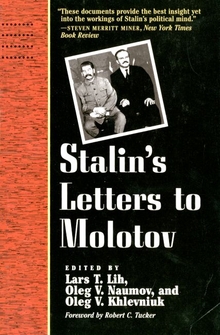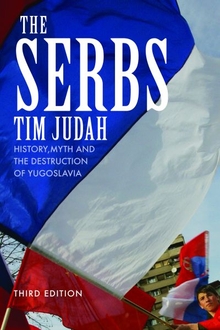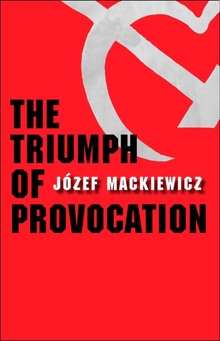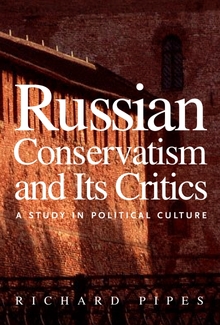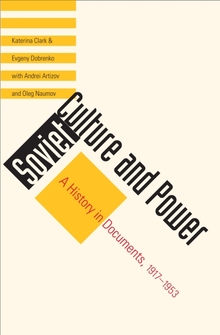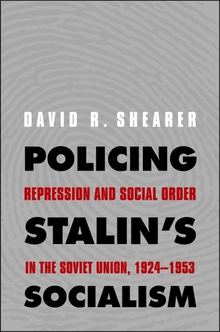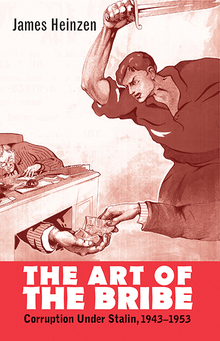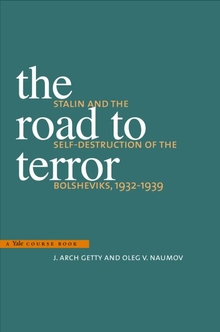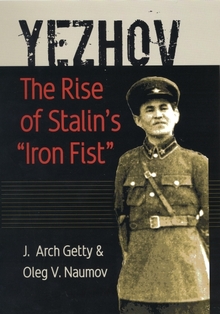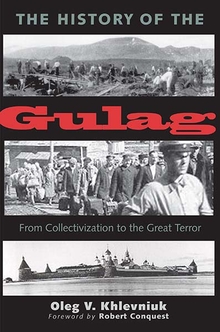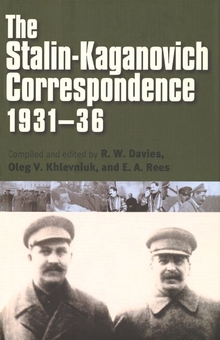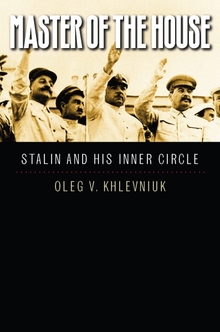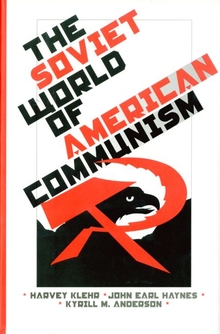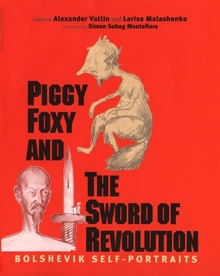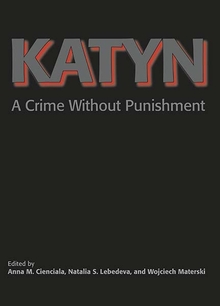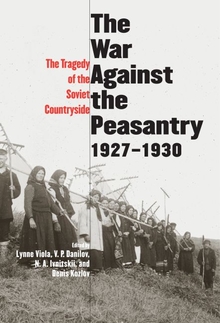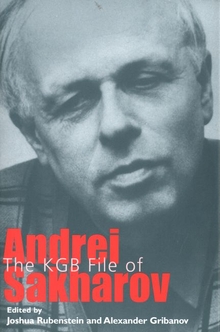Stalin's Letters to Molotov
WARNING
You are viewing an older version of the Yalebooks website. Please visit out new website with more updated information and a better user experience: https://www.yalebooks.com
1925-1936
Josef Stalin; Edited by Lars T. Lih, Oleg V. Naumov, and Oleg Khlevniuk; Translated from the Russian. Foreword by Robert C. Tucker
"Today I read the section on international affairs. It came out well. The confident, contemptuous tone with respect to the great powers, the belief in our own strength, the delicate but plain spitting in the pot of the swaggering great powers—very good. Let them eat it."—J. Stalin, January 1933
Between 1925 and 1936, a dramatic period of transformation within the Soviet Union, Josef Stalin wrote frequently to his trusted friend and political colleague Viacheslav Molotov, Politburo member, chairman of the USSR Council of Commissars, and minister of foreign affairs. In these letters, Stalin mused on political events, argued with fellow Politburo members, and issued orders. The more than 85 letters collected in this volume constitute a unique historical record of Stalin's thinking—both personal and political—and throw valuable light on the way he controlled the government, plotted the overthrow of his enemies, and imagined the future. This formerly top secret correspondence, once housed in Soviet archives, is now published for the first time.
The letters reveal Stalin in many different and dramatic situations: fighting against party rivals like Trotsky and Bukharin, trying to maneuver in the rapids of the Chinese revolution, negotiating with the West, insisting on the completion of all-out collectivization, and ordering the execution of scapegoats for economic failures. And they provide important and fascinating information about the Soviet Union's party-state leadership, about party politics, and about Stalin himself—as an administrator, as a Bolshevik, and as an individual.
The book includes much supplementary material that places the letters in context. Russian editor Oleg V. Naumov and his associates have annotated the letters, introduced each chronological section, and added other archival documents that help explain the correspondence. American editor Lars T. Lih has provided a lengthy introduction identifying what is new in the letters and using them to draw a portrait of Stalin as leader. Lih points out how the letters help us grasp Stalin's unique blend of cynicism and belief, manipulation and sincerity—a combination of qualities with catastrophic consequences for Soviet Russia and the world.
Lars T. Lih is the author of Bread and Authority in Russia, 1914-1921. He is working on a study of bolshevism. Oleg V. Naumov is assistant director of the Russian Center for the Preservation and Study of Documents of Recent History in Moscow. Oleg V. Khlevniuk is editor of the journal Free Thought.
"These documents provide the best insight yet into the workings of Stalin's political mind."—Steven Merit Miner, New York Times Book Review
"These personal and confidential letters refine the image of Stalin's leadership skills, coarseness, and brutality and shed light on key events. . .[The documents] are skillfully introduced by Lih, a U.S. specialist on this period, and accompanied by extremely helpful and often elaborate annotations provided by the two Russian collaborators and their colleagues."—Foreign Affairs
"[These] documents provide a wealth of insights into the early years of Stalin's rule. . . . [They] permit a much clearer understanding of the Stalinist regime."—Mark Kramer, Chicago Tribune
"These unpublished secret letters are arguably the most revealing documents yet from the Soviet archives to be made available in the West."—Alan Bullock
"This superbly edited work is an extraordinary collection of letters from Stalin to Molotov, written between 1925 and 1936. . . . Robert C. Tucker, Stalin's biographer, provides an insightful foreword, and Lih, a Western specialist on Russia, writes an engaging and masterful introduction to the collection. The book also contains a useful index and glossary of names. Highly recommended."—Choice
"We are accustomed to examining Stalin as the 'breaker of nations'; this collection should open the door to far-reaching questions about Stalin as the creature of his own milieu."—Michael David-Fox, Russian Review
"The Russian editors, have done a fine job of annotating the letters by using a mass of unpublished archival material that often yields insights fully as valuable as the letters themselves. The editors have also contributed useful introductory sections to each year."—Alfred J. Rieber, American Historical Review
"[These letters] render the horror of Stalin more accessible because they reduce the unimaginable to the level of text. They humanize Stalin, as far as this is possible, by recording his less-public voice. The letters also provide invaluable evidence of the Bolshevik political culture in which Stalin came of age, and which determined to a large extent the nature, of his leadership."—Patrick Henry, Moscow Times
"The well-edited letters printed in this inaugural volume of Yale's new Annals of Communism series will require us to re-evaluate our understanding of early Soviet history in ways that may be surprising and unsettling."—William Urban, Journal of Baltic Studies
"Lars Lih and his Russian collaborators have done an excellent job. . . . With the aid of Lih's admirable introduction, we find a much more plausible Stalin; both an astute and effective politician and, what is more novel still, a true believer in the "cause", quite in the ideological mode of Lenin, though rendered less utopian by the sustained responsibility of power."—Martin Malia, Times Literary Supplement
"Stalin's Letters to Molotov . . . is the first title to be published, giving the reader fascinating new insights into the secret world of Stalinist diplomacy."—History Today
"These letters offer an invaluable look behind the official pronouncements. Each letter is superbly documented with copious information and footnotes drawn from the Centre for the Preservation of Documents of Recent History."—Donny Gluckstein, History
Publication Date: August 28, 1996

